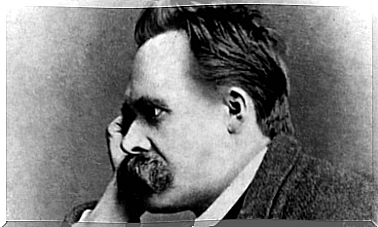How Do Men Change When They Become Fathers?
It is normal for studies to look at the impact that the birth of a first child can have on women. One can find many examples of this type of research.
Men, meanwhile, are relegated to the background. A few decades ago this lack of information and data might have made sense, but nowadays the place of men is totally different.
The universities of Yale and Denver, both located in the United States, jointly carried out a very interesting study to determine the brain changes that men experience after the birth of their first child.
Brain scans were performed on 16 new fathers one month before the birth of their offspring. After 3 to 4 months, a second phase of exploring the brains of these young dads was undertaken. The mean age of the test sample group was 36 years.
Previous studies had indicated that neuronal activity increased when fathers took charge of their children. This is because in such a situation they have to take care of everything and anticipate each task.
It is obvious that being responsible for a child puts our brain on high alert.
When a man or woman becomes parents, their brains become more alert no matter what situation they find themselves in.
In the case of the mother, this is not surprising, because it is she who gives birth to the child and who is responsible for feeding it, changing it and taking care of it in the early stages of its existence.
But, in the case of fathers, the situation is quite different, because in most countries they have to return to work after a few days.
The importance of this new data is undeniable. This is the first time that researchers have investigated the changes that can occur in the structure of a man’s brain when he becomes a father.
By carrying out the second scan, it was observed that the volume of gray matter had increased compared to the first information taken, that is to say one less before the birth of their child.
Areas that have experienced a noticeable increase in size are linked to various functions such as reward, hormonal control, memory, and decision making, among others.
This study made it possible to affirm that men, becoming fathers for the first time, experience a reduction in the size of certain regions of their brain.
The areas that have shrunk are those that activate when the brain “disconnects” from the outside world. Fathers’ ability to concentrate is therefore increased when their first child is born.
Areas of the brain that deal with anxiety have also experienced a significant reduction in size.
In the days leading up to childbirth, men, like women, experience a surge of anxiety directly related to the event.
However, once the child is born, they slowly begin to calm down. Other themes such as uncertainty or doubt can take the place of anxiety at this time.
What are the reasons for these changes?
We can stick to the purely scientific information revealed by the study, or we can analyze it from a sociological point of view.
It is true that men participate more in the education of their children than a few decades ago. And that has an impact on the structure of their brain.
Contrary to what could happen for previous generations, men take more care of the child, change him, feed him, put him to bed, take him to the park, accompany him to the pediatrician, babysit him when the mother is going for a run, etc. All of these situations did not exist just 20 or 30 years ago.
This is how postpartum depression occurs in men. It’s a disorder previously thought to be reserved for women, but it turns out that young fathers suffer from it too.
Even if we do not necessarily understand the bases of this depression, it is possible that this effect is due to the increase in the size of certain areas of the brain, which allow to eliminate the depression and anxiety.
It is as if the fathers find themselves in front of a goodie bag, but that after the euphoria of the beginning, they experience a complicated emotional descent.
The generational advance on parenting issues is immense. If men do not carry their child for 9 months, they rediscover the importance of protection, love and tenderness.
We must not forget that before being fathers, they too were children.









